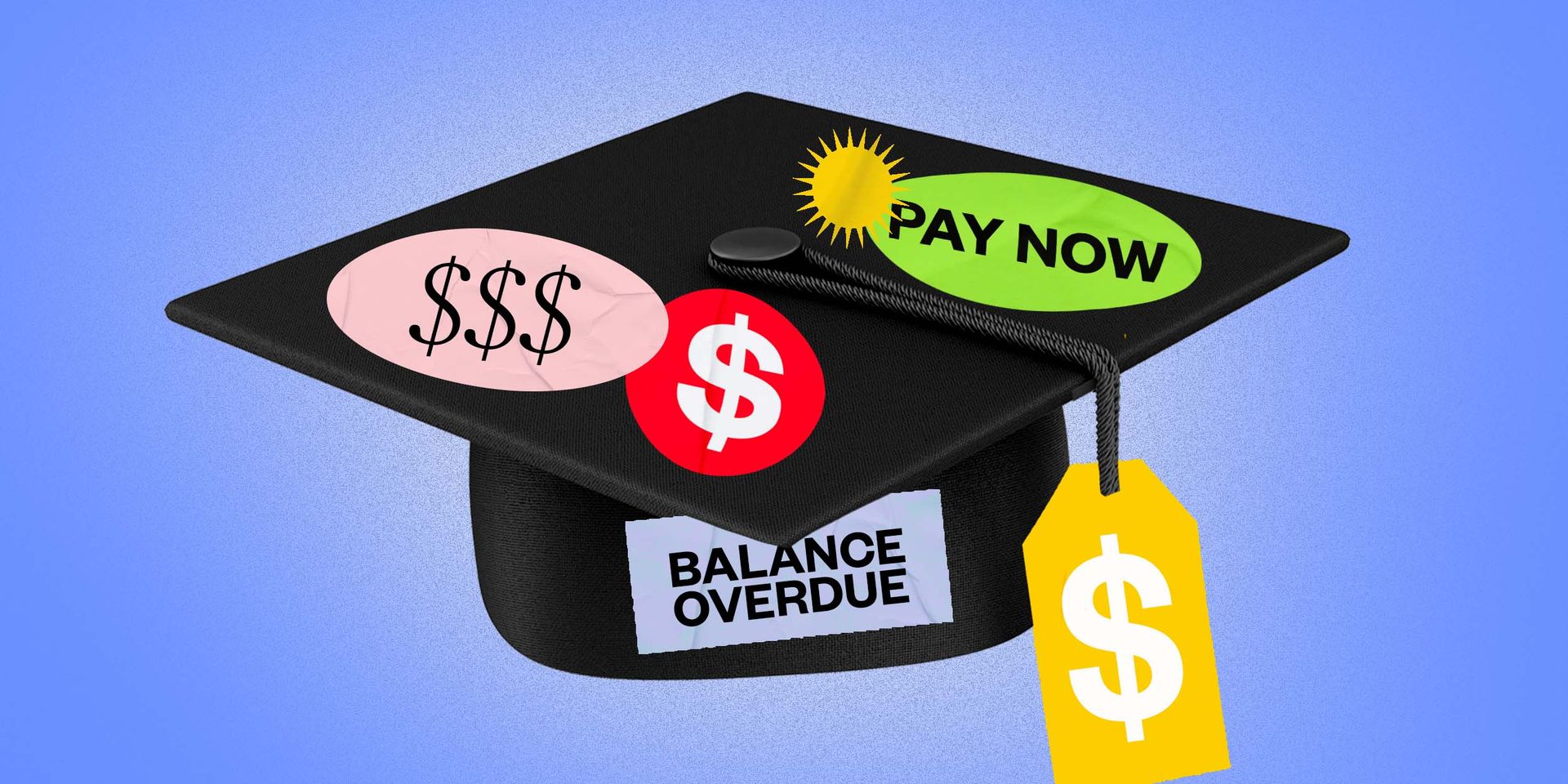Learn how to become financially successful
Blog Layout
5 Worst Financial Mistakes in your Lifetime!
Jaime Schekaiban • Jun 01, 2020
Avoid These at All Cost to Get into Financial Independence

When you are a little kid, you don’t ever think about money. You stare at something you want, then you stare at your parents and cry for it.
Things suddenly appear in the house and you get happy about it. You don’t realize how anything went from the store to the house.
As a teen, you start noticing money trends in the house. Maybe you see your parents struggling financially, or maybe not.
You get a weekly allowance (or monthly) and you use it to have fun. Your number 1 priority when you are a teenager is to have fun and hang out with your friends.
As you reach adulthood, that little bubble of yours bursts and you end up in a sad place. A place where you have to know about money and how to manage it.
People that know will live happier lives than people who don’t.
I have seen money mistakes made all the time. Some are small and correctable, while others are just FATAL
ones. I will mention the FATAL
ones below, so you make sure you never do them.
This will keep your financial integrity in place and will give you oxygen to breathe and achieve Financial Independence. This is the ultimate goal in your personal finance life.
1. Getting into an EXPENSIVE University That You Cannot Afford
I am not
against people studying a college degree. Actually, I wished EVERYONE
would have a college degree in the first place.
What I don’t understand is why people always aim at the FERRARIS
of Universities.
If I make $50,000 a year, and can barely afford to buy a pair of shoes, why am I thinking about buying a brand new $300,000 Ferrari
in the first place?
Why don’t I buy a $15,000
Honda Civic and move around in peace and style?
Students have plenty of options when it comes to getting a college education. None
of them are free, unfortunately.
You have Community College and State Universities. Those two are your best friends if you have little money and still want to pursue a college education.
You can also pursue a scholarship
in a more expensive University if you have the BRAINS
it takes to get one for free.
Every student has parents that have a Budget. If your parents are rich, making seven figures a year, then aim for the Top Colleges in the country.
If you cannot make ends meet, and are struggling just to pay the bills, stop aiming for the Ferraris of Universities. Settle down with the Hondas and Nissans of life. I have met very successful people that went to a State University and did part of it in a Community College.
If you graduate from College in four years with a $300,000 debt, you are dead from start. You will owe a staggering $4,000 or $5,000 per month
for many years! That is outrageous!
An $800,000 house
will cost you around $5,000 per month
to maintain. That is taking into account Mortgage (with a 20% down), Property Taxes, Insurance and even HOA!
Here in Houston, TX you can get a 3,500 sq. ft. home in the City Center for $800,000. That is a hell of a house! You do not want to owe this when you are just coming out of college!!
Doctors, if you are going to make $200,000 per year coming out of residency, why spend half of it paying off student loans? That is, IF
you are really good paying them off on time and do not encounter interests!
I recommend you study college in a place where you can afford. Start off in a Community College paying it cash, then jump into a State University. The University of Houston's tuition is payable if you work a part-time job in a bar or restaurant. You can come out with no debt. Trust me.
If you make $30,000, $40,000 or even $50,000 per year coming out of college, you want that money to be FOR YOU. You don’t want to give it away to someone at a 6% interest
rate for 10 years!
2. Getting an EXPENSIVE CAR
When you come out of college, or are in your younger age, this is one of the biggest mistakes people always make.
You get influenced by Social Media and the rich. You see all these people driving Mercedes, BMW’s, Audis, etc. and you think “Why not me?”
Well, the answer is simple: “They make 7 figures every year”. You make 5.
Going and getting a German car when you cannot afford it is one of the worst mistakes anyone can do in their lifetime. It will set you up for disaster.
Buy a car that is 3-5 years old, good mileage, good condition, good maintenance records, one owner, GREAT
price (according to Kelly Blue Book), and you can pay in less than
3 years.
You only have two choices when it comes to getting your car. Either you Finance it for 36 months or less, or you pay it Cash. DO NOT LEASE, and DO NOT BUY IT NEW.
If you just stop and think about these two Financial Mistakes right now, you can see a BIG
difference in terms of getting forward in your personal finances. We haven’t even talked about the other three!
Person A
went to an expensive college and bought a brand-new Mercedes coming out of it, while Person B
went to a Community College and State University and bought a 5-year-old car and paid it cash. Let’s continue with the mistakes and we will present the examples.
3. Buying a House you Cannot Afford
As you grow older, college education and a car seem not to interest you anymore.
Everyone is talking about getting married and having children. Everyone is also talking about buying their first house.
If you rent you are not cool, if you own then you are the coolest!
There are plenty of options when buying a house, and you can read them in my previous post about “How Much House you can Afford”. Let me summarize it.
You can buy a house in cash, which only very few people can do it. You can get a loan
which ranges from a 3.5% down
on an FHA, all the way to a 20% down
with a conventional.
When you buy a house, you need to add Mortgage payments, Property Taxes, Insurance and sometimes HOA (Homeowners Association Fees). This is the total payment you need to account for every month for either 180 or 360 months!
After you finish paying off your mortgage, you still need to pay Property Taxes and Insurance for the lifetime of the house. These go up in value every year or two.
While I am in favor
of owning vs renting, there is a right time to do it and you need to calculate how much house you can afford. Buying more house than what you can afford will KILL YOUR FINANCES!
Person A will go buy the most expensive house the lender will allow him to have, while Person B will calculate his MAX
spending on the house (with the 28%/36% rule) and then ONLY
use 75% of it to manage.
Let’s move on before going into examples.
4. CREDIT CARD DEBT and MONTHLY INSTALLMENTS
After people buy houses, cars, and pay off student loans, this is the next nightmare they face. This one is for their entire life! It is a never stopping burden in their Personal Finances!
Once you get your first credit card, you start spending like crazy. You buy a lot of things you don’t need to impress people that don’t care.
Then, you go to this store and see this gigantic television. It is 86”
and costs $12,000. You cannot afford to buy it in cash, and you cannot afford to put it in your credit card since your credit limit is too low. But guess what, YOU CAN PAY IT IN MONTHLY INSTALLMENTS!!!!
The devil whispers in your ear and tells you to go ahead and sign the document. This paper says you will pay the TV with a 5% interest
in 84 monthly installments.
That is 7 years in case you were wondering.
You will pay $169.61 per month
for 84 months. In the end, the TV will end up costing you not $12,000 but $14,247.24. That is 18.72% more. This is compound interest but against you!
So you think about it and wonder, “$169.61 per month is not that much money, I CAN AFFORD IT!” and go ahead and sign the dotted line.
You have just made one of the 5 Worst Financial Mistakes in your lifetime. At least this one lasts for 7 years, while the House might last for 30!
First of all, you don’t need a $12,000 TV. If you want a big screen, buy a projector or go to the movies. Second, you should never see payments for more than 12 months.
If you want to buy something that is out of your budget and is totally necessary (like a new refrigerator or washer) go for 12 months. There are three ways to pay for something like a new HVAC, which is totally necessary to live:
1. Pay Cash:
you need to have your finances in order, save your 20%, and have an emergency fund in place in order to explore this option comfortably.
2. Pay with a Credit Card and pay in full: You can play with your credit card and buy it just when the closing date hits, so you get 25 days plus a month to pay with no interest!
3. Pay with Monthly Installments: Go for 6, 9 or 12 monthly payments. Never go for more than 12. If you cannot afford it with 12, buy something cheaper or used.
Sometimes life throws you a curve ball. Your fridge goes bust, your washer or dryer, your HVAC, your floor needs replacement, your roof needs fixing. If your insurance doesn’t cover it and you need to make a big purchase, please follow my advice above. Do not get into too much debt that you can’t control, and never stop paying your credit cards every month in full.
5. NOT INVESTING
This is one of the things that many people do and it is one of the worst
financial mistakes of the list.
Even avoiding the other four mistakes will put you in a very safe and comfortable place with money, but this one will not allow you to be Financially Free.
You need to put your money to work for you. Saving your 20% or more and placing it in a Savings Account will not get you too far.
If your employer has a 401k match, go for it. If they give you money when you put money in your HSA account, go for it. Every benefit you get from your job you should take.
Start looking at the markets. Talk to a professional investor about your options. Take a look at Real Estate. Buy and Read books about investing. Get a mentor.
If you save money all your life you will be OK. You don’t want to be OK, you want to be Financially Free! You want to work for fun, not for money.
You want to have income being produced from sources other than your job and greater than your monthly expenses. That is what you want!
If you haven’t started, start now. There is time. You could be 60 years old and start investing. This is something like exercising, eating healthy and stop smoking. It is never
too late. Once you start, you see the benefits of it right away!
Now let’s go with the examples: this is the good stuff!
Person A
will make the 5 Financial Mistakes while Person B
will not. Let’s see how their lives end up after some years and making the same money.
Person A makes $100,000 per year coming out of college from a prestigious University and owes $250,000 in student loans. He buys a Mercedes for $50,000 brand-new and a $500,000 house in a 30-year loan. He also buys a lot of stuff with a credit card and monthly installments of well over 12 months.
Person B makes $30,000 per year coming out of college with no debt. He gets a used five-year-old Honda Civic for $8,000 and pays it in cash. He rents for a while, saving up his money and finally gets a $200,000 house in the suburbs in a 30-year conventional loan. He uses his credit card wisely, paying everything in full, and has a couple of monthly installments which will only last for less than 12 months.
Let’s look at the Net Worth
and Net Income
of Person A and Person B after 20 years…
Person A is 45 years old, is drowned in debt. He now makes $160,000 per year ($9,000 per month after taxes) and owes it all. Between the house and the cars, he spends $5,000 per month.
After paying for all his luxuries and credit cards, he is left with nothing. He lives paycheck to paycheck, praying that he doesn’t get laid off since it is his only source
of income. He has no savings and no investments. He blames the system and Capitalism as his worst enemy.
Person B is 45 years old as well. He now makes $160,000 per year in his job and another $50,000 in additional sources.
He drives a good car which he bought in cash, still lives in his same house in the suburbs which pays comfortably. His only debt is the house, which he doesn’t want to pay off since that will be freezing his cash
in a liability that doesn’t make him any money.
He has no monthly installments now, paid them all off, as well as no credit card debt. Every month, he receives his paycheck and saves around 50%
of it. He also saves all he makes from his Real Estate investments and Market dividends. He is one step away from Financial Independence, but it is not there yet.
Person A Net Worth is negative. Person B Net Worth is well over $250,000. Person A Net Income is negative, Person B's is over $12,000 per month.
My question is: Which one are you, or want to be?
Person A or Person B?
Closing Thoughts:
There are a lot of other mistakes people make when it comes to Personal Finances. These include: not saving 20%, not having an emergency fund, not Budgeting, not planning for the future, not having a secondary source of income, not leveraging your money, etc.
I find these 5 to be the ones that set you back the most.
Avoid these at all cost and plan your way to Financial Independence. You will end up in a much better place where you can live happier and stress-free.
Money is a game. You need to know the rules, understand how to make it and protect it, grow it, and make it work for you.
If you want to keep your job all your life, that is fine.
Work for the pleasure of working, not for money. Once you reach Financial Independence, if you really want to keep your job, then it means you really love what you do!
If you ditch that job, that means that you never did. Thanks to Financial Independence, you will be happier without it and never stressing out about money.
Let me know if you have any more Financial Mistakes that will kill your finances in the comments below!
Get my posts directly to your inbox
Contact Us
Thank you for contacting us.
We will get back to you as soon as possible.
We will get back to you as soon as possible.
Oops, there was an error sending your message.
Please try again later.
Please try again later.




